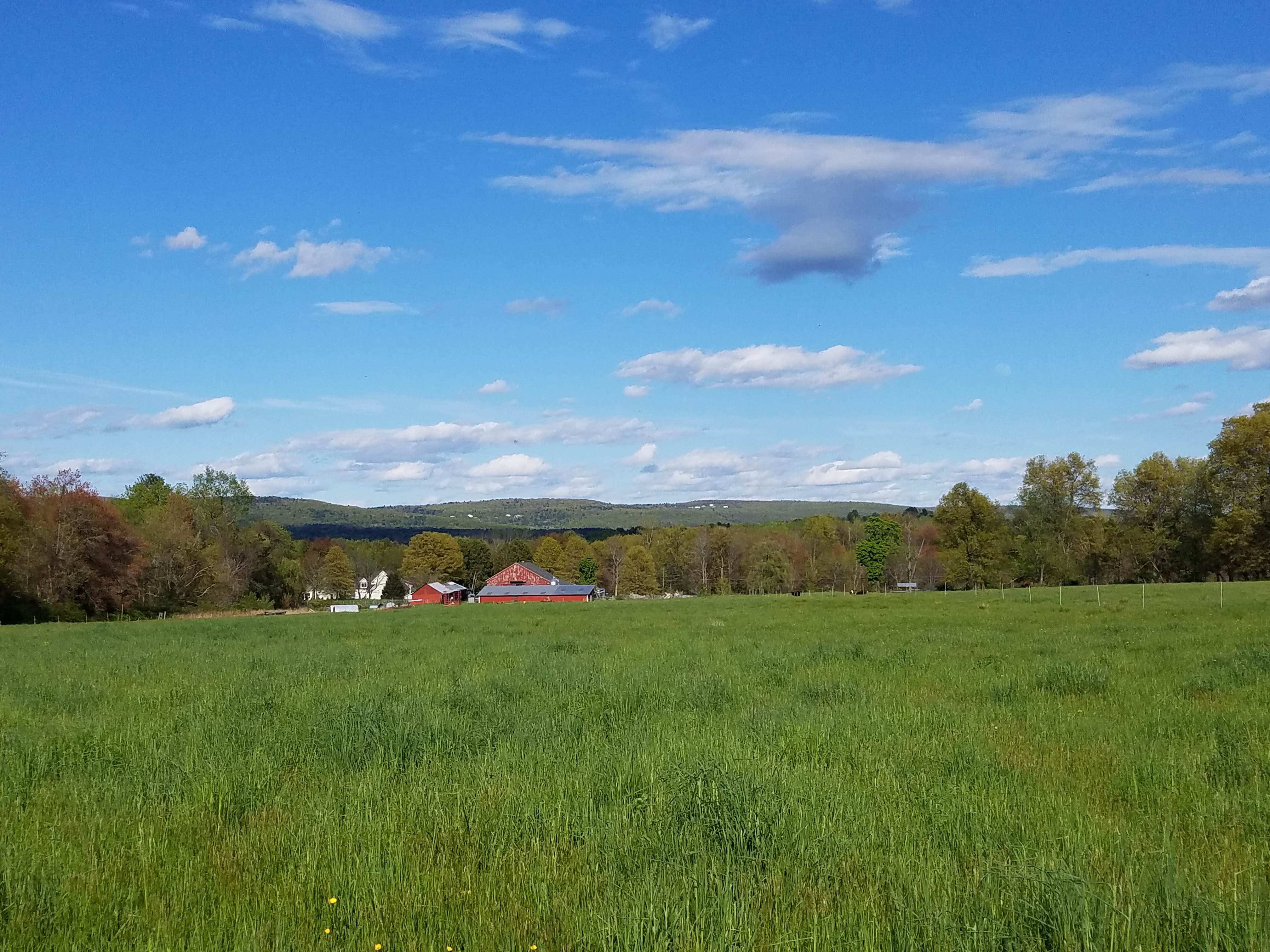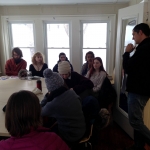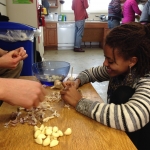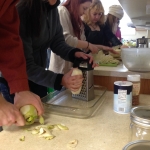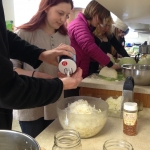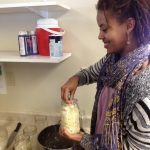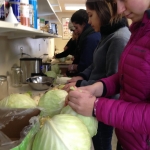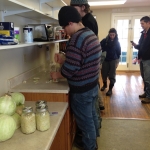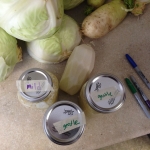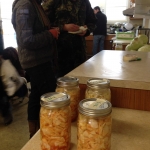Mark Twain once said “Cauliflower is nothing more than cabbage with a college education.” Well, here at Hampshire we might say that kimchi is nothing more than cabbage with a college education.
Yesterday, students in Tamara Stenn’s Social Entrepreneurism and Food Sustainability class trudged through thigh-high snow from campus down to the Farm Center to make kimchi, using vegetables from the Farm’s root cellar. Kimchi is a traditional fermented Korean food made from vegetables and various seasonings. While it’s flavor ranges from spicy to sour based on the ingredients used, the health benefits of Kimchi are consistently touted because of the probiotic lactic acid bacteria involved in the fermentation process. Learn how to make your own kimchi at home»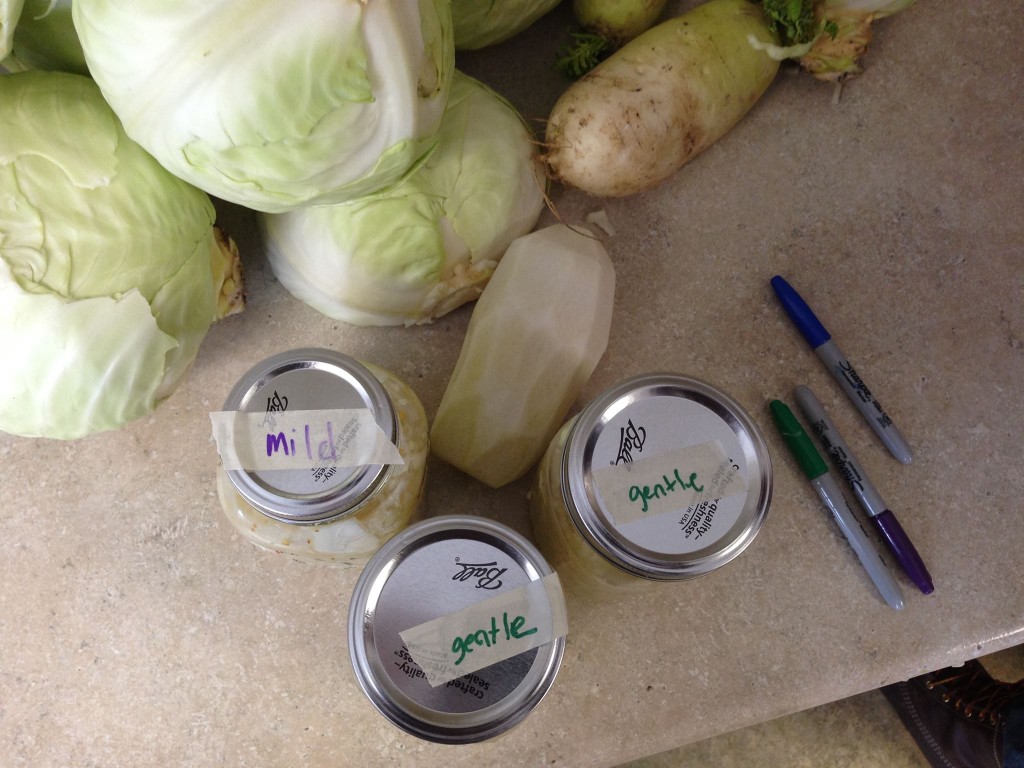
So what does kimchi have to do with Social Entrepreneurism? Stenn’s course explores food systems and different ways to address nutrition needs, vulnerability, and change through enterprise development. Several local food businesses are serving as case studies for the course including Real Pickles, a Greenfield-based business that specializes in naturally fermented products like sauerkraut and kimchi. Real Pickles is an example of a food business that strengthens the local food system by purchasing fresh produce exclusively from local farms and creating a healthy, shelf-stable product that can be enjoyed even in the barren months of a New England winter. Stenn has designed her course to emphasize experiential learning, so students will not only learn about local foods businesses, but they will also get to experience the work involved in those enterprises first hand.
With crates of cabbage, daikon radishes, and garlic at their disposal, the students sliced and diced their way through class yesterday under the tutelage of Stenn and Hampshire’s own fermentation expert, Professor of Microbiology Jason Tor. Tor has taught a variety of classes at the intersection of food, agriculture, and science including Kitchen Ecology, Cheese Microbiology and Biochemistry, and Farm to Fork. In under an hour, the class of 15 students had processed 15 daikon radishes, 15 heads of garlic, and 5 colossal cabbages into a finely shredded melee that was stuffed into glass jars to ferment for a few weeks. Stenn plans to hold a taste-test of the final product during class at the end of the month, but in the meantime her students will surely be fermenting their own entrepreneurial ideas!
